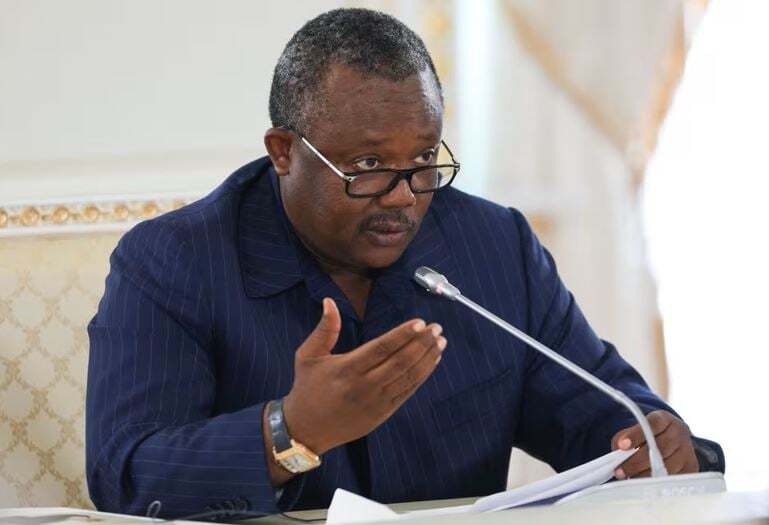The military in Guinea-Bissau has announced that it has successfully thwarted a plot aimed at destabilising the government, resulting in the arrest of several senior military officers accused of attempting to undermine the country’s constitutional order.
This announcement, reported by AFP, came just a day before the official campaign launch for the legislative and presidential elections scheduled to begin today.
“This action is intended to disrupt the electoral process,” stated the army’s deputy chief of staff, General Mamadu Ture, during a press conference in Bissau on Friday.
However, he refrained from disclosing the number of officers arrested or providing specifics regarding the alleged coup plot.
Sources indicate that among those detained is Brigadier General Daba Nawalna, the head of a military training centre situated approximately 30 kilometres from the capital, Bissau.
President Umaro Embaló, who is seeking re-election, warned on Thursday that his administration would not tolerate any disturbances during the campaign period.
“No disorder will be tolerated. The government has implemented all necessary measures to ensure the safety of each candidate throughout this campaign,” Embaló informed reporters following a cabinet meeting.
These arrests occur at a politically sensitive juncture for the small West African nation, where the upcoming elections are expected to be dominated by Embaló following the disqualification of the main opposition party.
Since gaining independence from Portugal in 1974, Guinea-Bissau has faced decades of political instability characterised by repeated coups. However, since the 2014 presidential election, efforts have been made to consolidate democratic governance and uphold the rule of law.
This latest development raises concerns over the resurgence of military takeovers across West Africa. Since 2020, Mali, Burkina Faso, Niger, and Guinea have all experienced coups that have ousted elected governments, heightening fears of democratic regression in the region.
While Guinea-Bissau has remained relatively calm in recent years, it is still one of West Africa’s most politically volatile states. The nation has witnessed over ten coup attempts, with the military retaining significant influence over national politics.
In 2022, an assault on the presidential palace—described by Embaló as an attempted coup—resulted in several fatalities.

